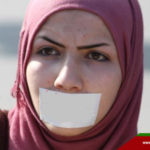By Fatima Kermalli
Without a doubt, Religion and Medicine have influenced lives substantially for centuries. What is the more, the Interconnections between the faith-based and medical sectors are multifaceted and have existed for just as long, which also includes partnerships that have evolved over the past several decades in the U.S.
There are approximately ten points that have engaged the medical and healthcare professionals and institutions across specialties that have focused especially on primary care, global health, and community-based outreach to the unfortunate populations. In a time when healthcare resources are scarce, partnering with religious congregations, denominations, and communal and philanthropic agencies—are useful. It is a blessing to the private-sector medical care providers and federal, state, and local public health institutions to protect and maintain the health of the population. At the same time, challenges and obstacles remain, mostly related to negotiating the complexity that exists between these two sectors. Identifying the pressing legal/constitutional, political/policy, professional/jurisdictional, ethical, and research and evaluation issues need to be better addressed before this work can realize its full potential.
For quite some time, American Muslims have made an important contribution to providing healthcare services to low-income, impoverished populations in their communities. Yet, so far, there has been little documentation to reflect this important community service by American Muslims. Henceforth, the Free Clinic, a free health care clinic in a low income city that has been in operation since 2004, and continues to grow and evolve with the needs of its community, is a prime example. Specifically, we begin by examining the history and functioning of the Free Clinic and its relationship with its neighborhood, and will identify the factors behind its success with the hope that such successes may be replicated elsewhere in American Muslim communities.
It is important to note that contribution factor to success is the variety of opinions that arise on some issues. This does not hinder the success of an organization, as long as there is agreement on the organization’s mission and vision. If the organization’s mission is clear from the outset, and there is a genuine buy-in from all members, internal disputes and differences can be resolved relatively easily.
What is more, upfront investment on a separate legal status and tax exempt status for the health care clinic is a worthwhile expense. For the Free Clinic, these investments opened the doors to funding and helped resolve issues when differences arose between some members of the Free Clinic and the Muslim Center. All board members agree that it helped immensely that the Free Clinic was a separate legal entity, distinct from the Muslim Center.
Furthermore, the Free Clinic effectively used a free, online template for the preliminary planning stages of the program as a valuable resource. Additionally, the clinic’s staff members and board continue to create relationships with other health care clinics and other service providers to learn from their business models, and to learn about new sources of funding.
Therefore, it is advisable to invest in malpractice insurance. Even if a volunteer physicians have their own malpractice insurance, organizational insurance provides the clinic with greater protection from liability.
Therefore, it is important to invest in the services of a professional grant writer. The Free Clinic’s success depends on its ability to actively and successfully seek new funding sources. Whereas, the Free Clinic previously hired a professional grant writer as needed, they now have a part-time CEO whose responsibilities include identifying and applying for grants.
On a leadership level, it is important to seek to balance stability with diversity. While retaining some founding members is key to success, new and diverse voices and viewpoints on the board are also essential for growth and evolution.
Another point is to outline a robust outreach strategy from the beginning. The free Clinic did not automatically generate clients. The organization must have a strategy in place that reflects the community’s needs. On an internal level, having a unified understanding of what the clinic’s desired patient base is (e.g., Muslim only vs. open to all), and crafting an outreach strategy accordingly is necessary to approach.
The facility must also have systems in place to ease evolution and to create transparency. Steps such as annual reviews and regular strategic planning are crucial for internal harmony and success. Reviewing mechanisms also helps an organization be prepared for an audit.
It is also important to regularly train staff members on health safety, and document the training. These steps not only ensure safer operations; they also serve as preparation in case of an audit.
It is also crucial to encourage and cultivate diversity. The decision of a suburban and inner-city mosque to work together for a common purpose was one of the keys to the Free Clinic’s success. Free health clinics sponsored by and for Muslims are best realized when those from within the city join forces with those in the suburbs with each group contributing essential ingredients for success. It also provides the challenges and opportunities for Muslims to discover and address biases and prejudices that fester among racial, ethnic, and socio-economic lines.
Basic primary care services, included those listed below, are provided by physicians who practice internal medicine and some specialties:
- Preventive services: blood pressure and cholesterol screenings, vaccines, counseling on diet, safety, etc.
- Dermatology: once or twice a month, depending on demand
- Ophthalmology: twice a month
- Psychiatry: as needed
- Basic radiology services: Radiology services are not offered by Free Clinic directly. Patients are referred to a nearby facility; The Free Clinic also offers five free ultrasounds per month and low-cost X-rays.
- Basic laboratory services: Laboratory services include all urinalysis and blood work. The Free Clinic sends vials and cups via courier to St. Joseph Mercy Oakland Hospital, which does the lab work for free, then faxes the results to the Free Clinic.
- These and many more tasks performed by the Free Clinic ensures much needed services to the community making the Free Clinic major need, not just a want.








